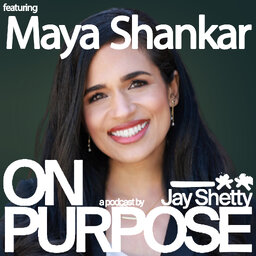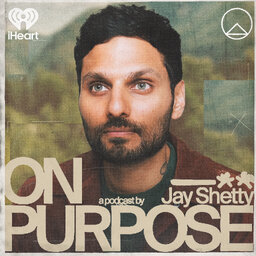3 Techniques to Switch from Overthinking to Thinking Effectively & 4 Ways to Turn That Into Action
Today, I’m going to talk about the difference between overthinking and thinking effectively, what leads us to overthink things instead of thinking through them to get clear answers, and why we tend to overthink and lose focus.
I share three ways we can differentiate the two and the characteristics we should look out for so we don’t end up wasting our time overthinking. Additionally, I list down four ways we can pivot from being an overthinker to becoming an action-doer, a rational thinker who wouldn’t shy away from making mistakes and failing, and has the initiative to take risks and seize opportunities.
If you want to pre-order the book, 8 Rules of Love, go to https://8rulesoflove.com/
Key Takeaways:
- 00:00 Intro
- 02:03 The difference between thinking and overthinking
- 07:32 Difference #1: Time
- 12:04 Difference #2: Action
- 14:53 Difference #3: Structure
- 16:34 You’ll never feel ready
- 18:48 Expect failures and mistakes
- 20:01 Break down what you want to achieve to the smallest things
- 22:33 Surround yourself with people who take action
Like this show? Please leave us a review here - even one sentence helps! Post a screenshot of you listening on Instagram & tag us so we can thank you personally!
Do you want to meditate daily with me? Go to go.calm.com/onpurpose to get 40% off a Calm Premium Membership. Experience the Daily Jay. Only on Calm
Want to be a Jay Shetty Certified Life Coach? Get the Digital Guide and Workbook from Jay Shetty
https://jayshettypurpose.com/fb-getting-started-as-a-life-coach-podcast/
In 1 playlist(s)
On Purpose with Jay Shetty
My name is Jay Shetty, and my purpose is to make wisdom go viral. I’m fortunate to have fascinating …Social links
Follow podcast
Recent clips

Dr. Maya Shankar: Does Change Make You Feel Lost Or Uncertain? (Use THIS Framework To Find Direction Again and Use Change to Upgrade Your Life!)
48:02

Dating Expert Sabrina Zohar: You’re Not Confused, You’re Ignoring the Signs (THIS Mindset Shift Will End the “What If” Loop for Good)
1:29:10

The REAL Reason You Feel Behind (It’s Not What You Think!) Use THIS Simple Reset to Make Confident Decisions
21:57
 On Purpose with Jay Shetty
On Purpose with Jay Shetty